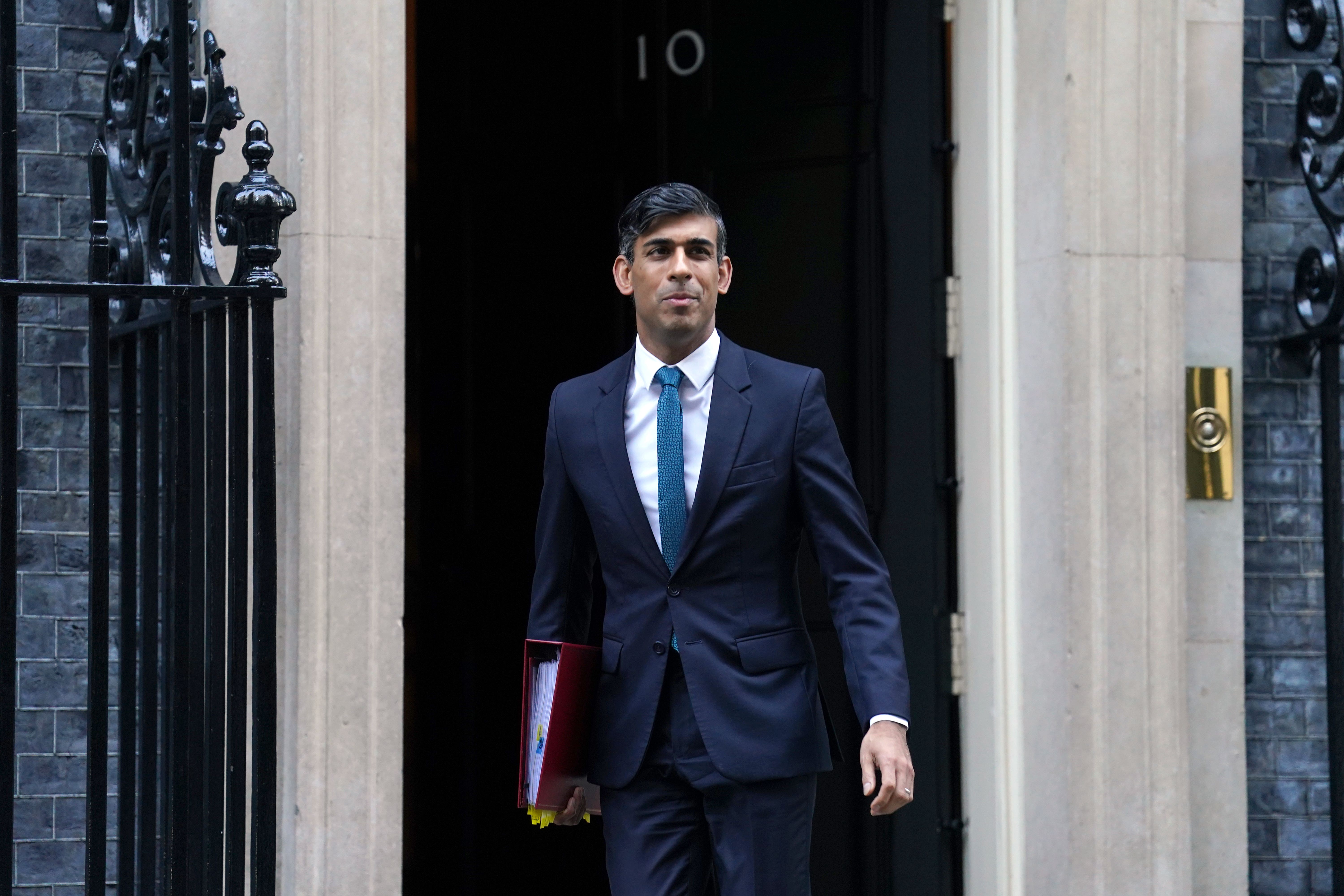Tory backbenchers warn Sunak’s future could be decided by Rwanda ruling response
The New Conservatives grouping of MPs said the judgment felt ‘existential’ for the party.

Rishi Sunak is facing unrest in the Tory ranks over the Supreme Court’s ruling that the Government’s Rwanda scheme is unlawful, with backbenchers warning his future could be decided by his response to the decision.
The New Conservatives grouping of MPs said the judgment felt “existential” for the party while deputy chairman Lee Anderson said ministers should “ignore the law” and start sending asylum seekers to the east African nation.
Backbenchers on the Tory right are now calling for a drastic overhaul of the UK’s rights and treaties framework, potentially going beyond their previous suggestion of overriding the European Convention of Human Rights (ECHR).
Other measures to disapply treaties such as the Refugee Convention should now be considered if necessary given the scope of the judgment, the New Conservatives have argued.
I think we should ignore the laws and send them straight back the same day
Speaking after a meeting of the group with other Tory MPs on Wednesday, co-chair Danny Kruger said: “The Government should immediately announce an intention to do what is necessary to insist on our sovereignty.
“That means legislation to override the effect of the European court, of the ECHR itself and of other conventions including the Refugee Convention if necessary.”
Co-chair Miriam Cates did not say whether she maintained full confidence in the PM when asked by journalists.
“He has said he will do whatever it takes to stop the boats. The next few days will show whether we’ve got the legislative power and the political will to do that.
Ms Cates added: “We will support him to do whatever it takes.”
Tory Party deputy chairman Mr Anderson suggested the Government defy the ruling of the court and remove migrants the same day they arrive in the UK.
He described the Supreme Court judgment as a “dark day for the British people” and said ministers should “just put the planes in the air now and send them to Rwanda”.
“My take is we should just put the planes in the air now and send them to Rwanda and show strength,” he said.
“It’s time for the Government to show real leadership and send them back, same day. I think we should ignore the law and send them straight back the same day.”
Downing Street refused to condemn the Tory deputy chairman for suggesting ministers ignore the judgment.
Mr Sunak’s press secretary said: “I think we appreciate that our MPs have strong views on this because, frankly, the country cares about this.”
Jonathan Gullis, part of the New Conservatives grouping, said there was a range of options the Government could consider, including physically pushing small boats back into French waters in the Channel.
“Obviously disappointing, the decision today for the Government, but crucially we need to make sure that a plan B is quickly enacted in order to retain the trust of voters and to make sure that we do deliver on that pledge to stop the boats,” he said.
“Something that myself, Danny Kruger and Bill Cash pushed before which was a notwithstanding amendment, maybe bring that in as a notwithstanding Bill to disapply all conventions and treaties that we’ve signed up to, which have been a blocker, clearly, from the judgment of the Supreme Court in enabling to enact such policies.”
He said another option would be to “literally push boats back into French territorial waters … or if not, take more direct action and actually start returning people to the French shores rather than bringing them back over to British shores, regardless of any conflict that may end up with the French government.”
Meanwhile, Brendan Clarke-Smith, another Conservative MP from the 2019 intake, posted a picture on X, formerly Twitter, of a 2016 Daily Mail headline suggesting judges were “enemies of the people” over a ruling on Brexit.
“We’ve been here before,” he wrote.
He later insisted he had not been attacking justices of the Supreme Court but making a point about the “democratic choices” of British people, adding: “Like we did then with Brexit, we solved the problem in Parliament and it’s my intention to make this happen again.”
Former Cabinet minister Sir Simon Clarke said the Government’s response to the legal setback would be a “confidence issue” in Mr Sunak’s judgment as a Prime Minister.
He suggested emergency legislation would have to be put forward “at a minimum” to assert Parliament’s sovereignty.
Former home secretary Priti Patel said that ministers “have had the opportunity to address some of these practical measures and means thus far prior to today’s judgment”.
In the Commons, Home Secretary James Cleverly resisted calls to withdraw from the ECHR and the international Refugee Convention, telling Tory MPs: “I don’t believe those things are necessary.”
He added that “national governments can’t just vote themselves out of international commitments” and as a former foreign secretary he knew they were “incredibly powerful tools as we try and do good around the wider world”.
Mr Sunak’s strategy is to seek a new treaty with Rwanda that will address the concerns of the Supreme Court.
But the Prime Minister said that “if it becomes clear that our domestic legal frameworks or international conventions are still frustrating the plans at that point, I am prepared to change our laws and revisit those international relationships”.
